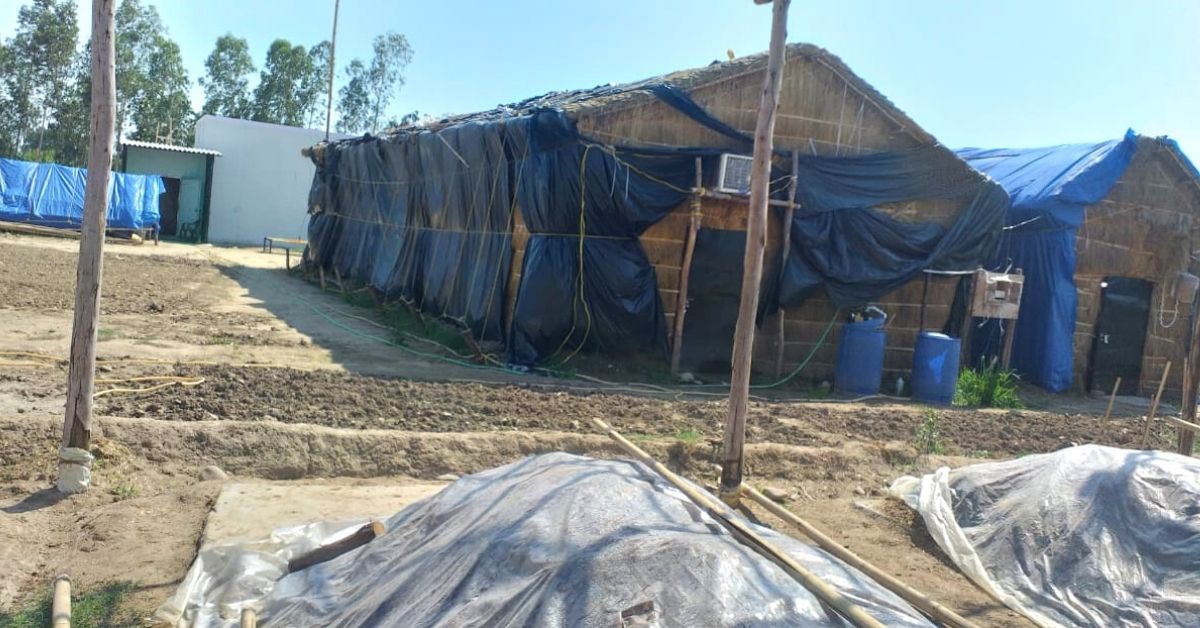In June 2020, Satinder Singh Rawat moved from Dubai to Noida after losing his job as a retail operations manager due to the COVID-19 pandemic. The 46-year-old had been working in the Gulf for 15 years and the sudden loss of job forced him to rethink his career plan.
“I was handling around 200 stores and managing a business worth Rs 2,500 crores. I could have applied for another job in the same sector, but it would pose the same risks and challenges during the ongoing pandemic,” he says.
So Satinder decided to embark on a different career path and switched to farming. In a conversation with The Better India, he talks about how he recovered from the loss of income and became financially independent through his agri startup, Shreehari Agrotech.
‘The effort is worth the returns’

Satinder began by discussing his idea with his father-in-law and friends. As the lockdown eased around September, he travelled to and leased a 1.5 acre land in Ramnagar village in Nainital, Uttarakhand. “My father-in-law suggested I pursue horticulture initially, as it would help produce flowers every two months. However, this was not feasible financially, so my wife Sapna and I decided to try growing button mushrooms with,” he says.
In January, Satinder started growing mushrooms by setting up a concrete facility and two huts made from bamboo and plastic. Inside these, he fit air-conditioners to maintain optimum temperatures. “In March and April, we harvested our first produce and earned sales worth Rs 6 lakh,” he says
The mushrooms were widely sold in Ramnagar’s vegetable markets, wedding venues, banquet halls, restaurants and to other customers.
Satinder says that over 50% of the sales were his profits. While the couple tasted success, it was a tough six months for them while they set everything in place, he adds.
“We had zero background in farming and no formal training in growing mushrooms. We hired a professional on a contract basis to take us through the initial phase. Later, we roped in a professional grower permanently. Our core team works alongside him and is learning the basics of mushroom farming,” he says, adding, “However, we have now learned the ropes and can independently make mushroom compost and grow them without outside help.” Satinder’s core team consists of 10 locals of the village, two of whom reverse migrated from Delhi owing to COVID-19.
Moreover, the mushrooms are grown through a chemical-free process. The temperature needs to be between 18 and 19 degree celsius. Hence, we installed air-conditioners,” he says, adding that he invested his life’s savings into the venture.
Satendra says the erratic electricity supply and on-ground difficulties posed other challenges.
“But the efforts and risks are worth the returns. I am no longer stuck in the 9-5 job cycle,” he adds.
Today, the couple earns Rs 2.5 lakh per month from their venture.
Promoting the hut model

Sapna, who handles the technical operations of the business, says that the infrastructure can grow 70 tonnes of mushroom. “We are in the process of building two huts in Bhatwaron village, which falls under the Beeronkhal block of Pauri district, and aim to increase production to 70 tonnes, which will be worth Rs 40 lakh in the next six months,” she says.
Apart from growing button mushrooms, the couple learned how to grow the oyster variety, another edible mushroom that is popular in local markets. “Recently, we started processes to grow seasonal vegetables organically. We are keen on exploring organic produce and feel that it will help both humans as well as nature,” she adds.
“I want to promote an economically feasible model for farmers who grow traditional crops such as cereals, wheat and sugarcane. Producing non-conventional agriculture in the region can prove economically beneficial to them,” she notes.
Satinder says that the startup aims to promote its model of growing mushrooms in huts to other farmers. “The 20×50 feet hut set up spreads around 1,000 sq feet area. The infrastructure costs Rs 1.5 lakh with the air-conditioners and can sustain up to six years. The investment cost recovers in the first cycle of harvest itself, and the remaining production comes as profits. The air-conditioning allows the mushrooms to grow through the year,” he adds.
“We want to help farmers think beyond traditional farming. If a farmer can identify a market and good location, he can earn more money from a small land and will not need to depend on mega crops,” he adds.
Edited by Divya Sethu
No comments:
Post a Comment